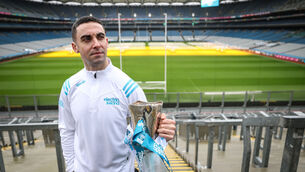Kerry fear for their future
The worsening trend of rural depopulation in Kerry is having considerable consequences already, GAA officials in the county have been told. A sub-committee established by the Kerry County Board to investigate the problem has revealed that 23 of the 76 clubs in the county have less than an average of eight boys per class in their local primary schools.
Eight of the 23 clubs have less than an average of 5 boys per class — with six of these clubs being in the South Kerry area, home to such Kingdom legends as Mick O’Connell, Jack O’Shea, Maurice Fitzgerald, Declan O’Sullivan and current Kerry coach Jack O’Connor. It is forecast that each of these 23 clubs will have to amalgamate with other clubs to field underage teams over the coming years.













